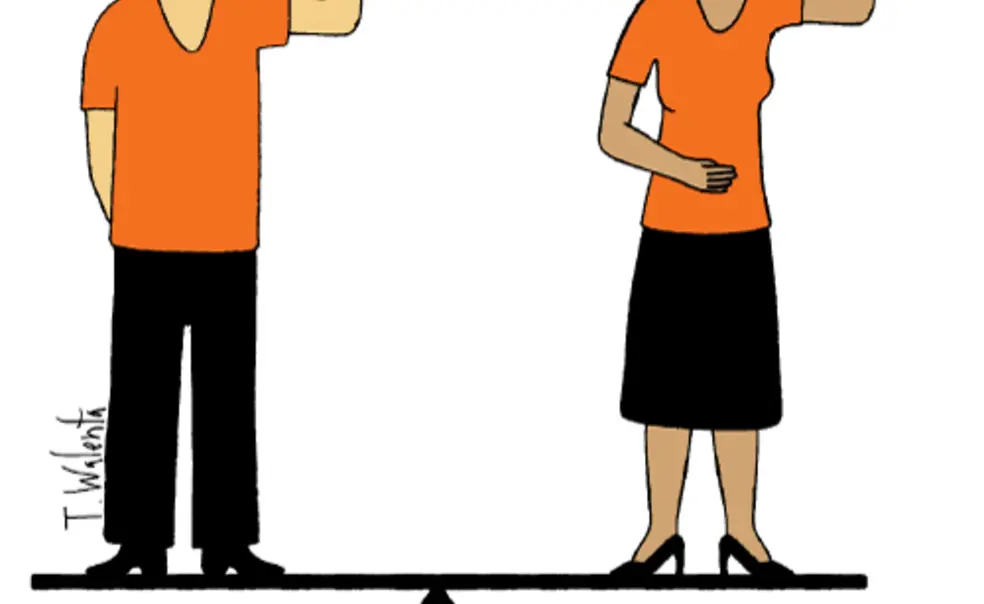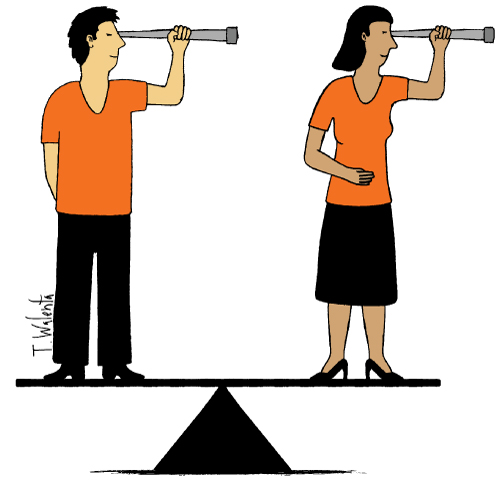Mixed verdict for report on women’s leadership
At Princeton, as in many places, big news often has a short shelf life. The March 2011 Steering Committee on Undergraduate Women’s Leadership (SCUWL) report, which examined whether Princeton’s men and women were pursuing academic and extracurricular opportunities at the same levels, was no exception — the stream of op-ed articles and discussions that followed its release died down in a matter of days. But nearly a year later, some students said they felt the committee’s findings still underscore campus dialogue about leadership and gender.
“Even though the newness of the report has worn off, I think that it’s still in the back of many people’s minds,” Allison Daminger ’12 said in an email.
Last year, the SCUWL study reported a decade-long trend of undergraduate women at the University being underrepresented as recipients of major academic prizes and in the most visible leadership positions. The year that followed marked several noteworthy events in campus extracurricular and academic leadership.
The Quadrangle Club, for example, elected a female president for the second year in a row. In November, male and female candidates vied to become Undergraduate Student Government president, a position not held by a woman in a decade (Bruce Easop ’13 defeated Catherine Ettman ’13 by 84 votes out of more than 2,000 cast). On the academic side, three out of four Princeton winners of the 2012 Rhodes scholarship were female, as were four of the University’s five Marshall scholars.
Marshall scholar Emily Rutherford ’12 said the report was an important factor in her decision to seek the fellowship. At a reception in November for Rhodes and Marshall scholarship finalists, she said,“it was definitely on everybody’s minds that there had been a change, and a positive change.”
Andrew Blumenfeld, the USG’s Class of 2013 senator, said he had drawn upon the report’s findings in drafting new USG election policies. “At the most basic level, it raised a level of awareness,” he said.
This awareness extended all the way to Princeton’s newest members — those who first stepped through FitzRandolph Gate in September. “I was impressed that there were a number of freshmen this year who had read the report,” said Ettman, who was a member of the SCUWL committee.
That the report has made students more aware of women’s leadership as an institutional concern does not mean it has escaped criticism — many students remain unconvinced by the report’s findings, or at least find its messages problematic.
Rutherford said the report relied on survey-based and anecdotal evidence for a number of findings, particularly those pertaining to student experiences with leadership on campus, which “could have made people discredit it.”
Professor Nannerl Keohane, who led the study group that produced the report, noted in an email that the study had produced a “mixed” reaction: Some students were delighted to have their views of campus leadership patterns confirmed; some paid little attention to it; another group “dismissed it as paternalistic and wrong-headed; others worried that it would make women students sound somehow inferior.”
She added that “whatever is happening on campus, it’s surely having some impact more generally in higher education,” noting that she had been invited to appear at two conferences last month to discuss the report’s findings.
Overall, the SCUWL report seems to have penetrated the consciousness of the student body. It “reignites conversation,” according to associate dean of undergraduate students and SCUWL subcommittee chair Thomas Dunne.“It causes people to think in more sophisticated ways about how leadership functions on campus — what are the opportunities, what are the challenges,” he said.
But Easop, the USG’s new president, said he felt that current discussion of the report, while productive, is missing something. “We need to celebrate leaders who don’t have traditional high-profile positions,” he said, adding that leadership is “all about the contribution you make, and in that sense really anybody can be a leader.”













No responses yet